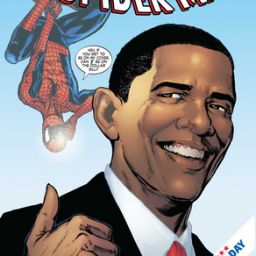[youtube=http://www.youtube.com/watch?v=BkogKAZGm_g]
As I previously wrote about in my post, Heart’s Barricuda: A lesson in licensing, ownership, politics, and moral rights, politics and artists have clashed regarding political theme songs.
Christopher Sprigman and Siva Vaidhyanathan have an editorial in the Washington Post on this issue (thanks to Madisonian/Ann Bartow for the headsup):
Artists should speak up, loudly, when they feel the use of their songs misrepresents their views, particularly if such use could create the public impression of an endorsement.
If artists start trying to pick and choose who is eligible for a blanket license, the efficiency of the system would be destroyed. The McCain campaign has continued to play “Barracuda” since the Republican convention precisely because it cleared the license for such use with ASCAP. The campaign paid for the use of “My Hero” as well.
The second reason is more fundamental. Politicians use songs as a way to tell people what they stand for — or at least what they want us to believe they stand for. Using a song to communicate a political message is just the kind of speech the First Amendment was designed to protect.
Recently, Foo Fighters’ Dave Grohl has also stated his objection to the use of “My Hero” at McCain campaign rallies:
“The saddest thing about this is that `My Hero’ was written as a celebration of the common man and his extraordinary potential,” the Foo Fighters said in a statement. “To have it appropriated without our knowledge and used in a manner that perverts the original sentiment of the lyric just tarnishes the song.”
Artists are paid when their songs are used in adverts by their own choice. Plenty of artists consider their works to be part of an artistic vision. In addition, when they do not live up to what fans want from them, they are frequently viewed as “sell-outs”. I’m not sure how to solve this problem; as Sprigman and Vaidhyanathan mention the present system does allow for more expression and is economically more viable then an opt-out model.
Perhaps what is needed is a musical version of the McCain-Feingold campaign ad message, “I am X candidate and I support this message” to a “Y artist does/does not support this candidate”. At least that will prevent confusion about endorsements while not dealing with the hurt feelings/moral rights of the artists.



